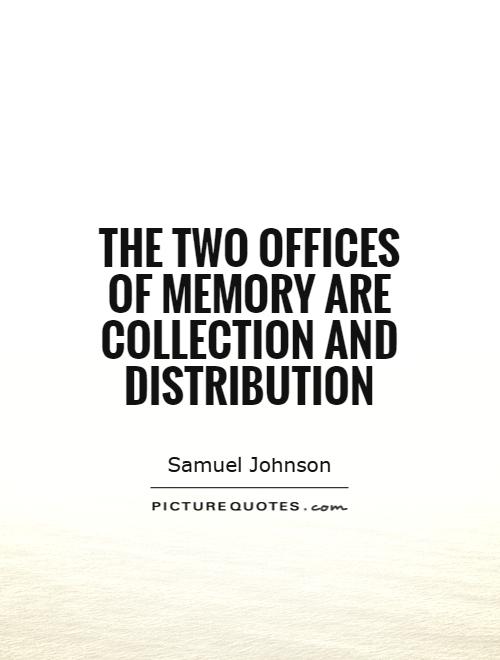The two offices of memory are collection and distribution

The two offices of memory are collection and distribution
Samuel Johnson, the renowned 18th-century English writer and lexicographer, once famously stated that "The two offices of memory are collection and distribution." This profound statement sheds light on the intricate workings of the human memory and how it functions in storing and retrieving information.In the context of Samuel Johnson, this quote can be interpreted in various ways. Johnson himself was known for his exceptional memory and intellectual prowess, which allowed him to compile the first comprehensive English dictionary. His ability to collect vast amounts of information and then distribute it in a coherent and organized manner was a testament to the power of memory.
The first office of memory, collection, refers to the process of gathering and storing information. Johnson was known for his meticulous attention to detail and his insatiable thirst for knowledge. He spent years collecting words, definitions, and examples for his dictionary, meticulously organizing them in a systematic manner. This process of collection was essential for him to create a comprehensive and authoritative reference work that would stand the test of time.
The second office of memory, distribution, refers to the ability to retrieve and disseminate information effectively. Johnson's dictionary was not just a collection of words and definitions; it was a tool for educating and enlightening readers. By distributing this wealth of knowledge in a clear and accessible format, Johnson was able to make a lasting impact on the English language and literature.












 Friendship Quotes
Friendship Quotes Love Quotes
Love Quotes Life Quotes
Life Quotes Funny Quotes
Funny Quotes Motivational Quotes
Motivational Quotes Inspirational Quotes
Inspirational Quotes